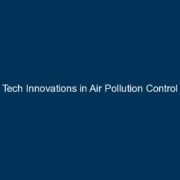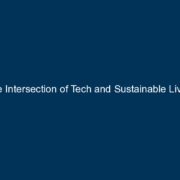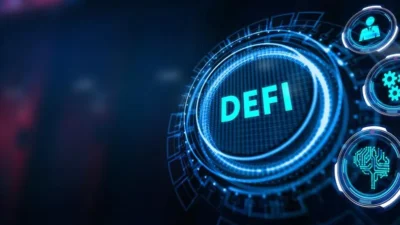Water scarcity is a global challenge that demands innovative solutions. Fortunately, technology is stepping in to address this issue with groundbreaking innovations in water conservation. This blog explores the latest tech advancements that are revolutionizing the way we manage and conserve water resources, ensuring a sustainable future for our planet.
Smart Irrigation Systems
Precision Watering
Traditional irrigation systems often lead to overwatering, resulting in water wastage and increased costs. Smart irrigation systems, powered by sensors and real-time data, revolutionize this process. These systems analyze weather conditions, soil moisture levels, and plant needs to deliver precise amounts of water exactly when and where it’s needed. This not only conserves water but also promotes healthier plant growth.
Automated Monitoring and Control
Smart irrigation systems allow users to monitor and control watering schedules remotely. Through mobile apps or web interfaces, users can adjust irrigation settings, check moisture levels, and receive alerts about system status. This level of automation not only saves time for users but also contributes to efficient water use.
Leak Detection Technologies
Advanced Leak Sensors
Water leaks can go unnoticed for long periods, resulting in significant water waste and potential damage. Advanced leak detection technologies, such as smart leak sensors, use real-time monitoring to identify and alert users about leaks promptly. These sensors can be placed in key areas like pipelines, appliances, or even in the soil to detect leaks in irrigation systems.
Blockchain for Water Management
Blockchain technology is making waves in water conservation by providing a secure and transparent way to manage water resources. Blockchain enables the creation of a decentralized water management system, where users can track water usage, verify the authenticity of water sources, and facilitate efficient water trading. This technology encourages responsible water consumption and helps prevent unauthorized water use.
Wastewater Treatment and Reuse
Decentralized Wastewater Treatment
Decentralized wastewater treatment systems utilize innovative technologies to treat wastewater at the source. These systems can be implemented in residential, commercial, or industrial settings, reducing the load on centralized treatment plants. By treating wastewater on-site, these systems contribute to water conservation and can also provide reclaimed water for non-potable uses.
Membrane Technologies for Water Reuse
Advanced membrane technologies, such as reverse osmosis and ultrafiltration, play a crucial role in water reuse. These technologies remove contaminants and impurities from wastewater, producing high-quality reclaimed water. This treated water can be used for irrigation, industrial processes, or even as a source for potable water, reducing the demand on traditional water sources.
Smart Water Meters and Monitoring
Real-Time Consumption Data
Smart water meters provide real-time data on water consumption, allowing users to track usage patterns and identify areas for improvement. This data can be accessed remotely, enabling users to make informed decisions about water conservation measures. Additionally, smart meters contribute to leak detection by monitoring continuous water flow and identifying anomalies.
AI-Powered Predictive Analytics
Artificial intelligence is enhancing water management through predictive analytics. AI algorithms analyze historical consumption data, weather patterns, and other relevant factors to predict future water demand. This enables water utilities to optimize distribution, plan for peak demand periods, and proactively address potential water shortages.
Drought-Resistant Crops and Precision Agriculture
Genetic Engineering for Drought Resistance
Biotechnology and genetic engineering are contributing to water conservation in agriculture by developing drought-resistant crops. Researchers are modifying plant genetics to enhance water-use efficiency, allowing crops to thrive with reduced water inputs. This innovation holds the potential to transform agriculture, a sector that consumes a significant portion of global water resources.
Precision Agriculture Technologies
Precision agriculture utilizes technology to optimize farming practices and conserve water. Remote sensing, drones, and IoT devices provide farmers with real-time data on soil moisture, crop health, and weather conditions. This information allows for precise irrigation, ensuring that water is applied only where and when it is needed, minimizing wastage.
Conclusion
In conclusion, tech innovations in water conservation are paving the way for a more sustainable and water-efficient future. From smart irrigation systems and leak detection technologies to advanced wastewater treatment and precision agriculture, these innovations address the multifaceted challenges of water scarcity. As technology continues to evolve, the synergy between innovation and water conservation holds the key to securing our precious water resources for generations to come.
The future of water conservation lies in the continued development and adoption of these technologies. By embracing these innovations, individuals, businesses, and communities can play a significant role in mitigating water scarcity and building a more resilient and sustainable water future.



















Comments